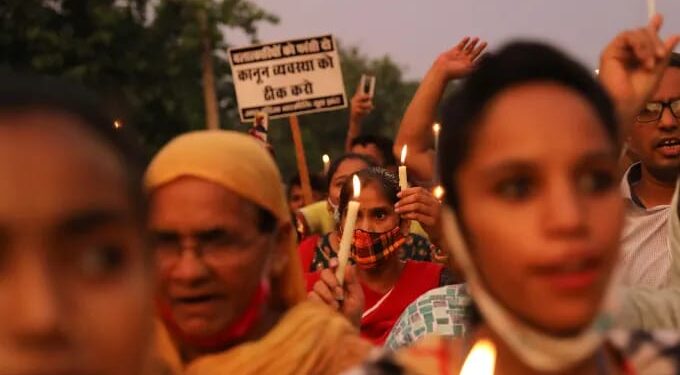A judge in India has dismissed a woman’s complaint alleging “unnatural sex” by her husband, citing a legal provision that does not criminalize marital rape. The ruling, issued in the Madhya Pradesh High Court, has drawn attention to a legal gap in India’s laws, which do not classify forced sexual acts by a husband against his wife as rape if she is above 18 years old, as reported by CNN.
According to the court order, the woman reported to the police that her husband engaged in “unnatural sex” with her on multiple occasions after their marriage in 2019, invoking Section 377 of India’s penal code, which historically targeted non-consensual “carnal intercourse against the order of nature.” This section was previously used to prosecute same-sex couples until the Supreme Court decriminalized homosexuality in 2018.
Despite the woman’s allegations and her claim of threats of divorce if she spoke out, the judge emphasized India’s marital rape exemption, inherited from British colonial rule. He stated that under current laws, marital rape is not recognized, highlighting the legal age of consent for marriage, which was raised to 18 by the Supreme Court in 2017.
The woman also accused her in-laws of mental and physical harassment related to dowry demands, with a trial pending. This case has reignited discussions about the treatment of women in India’s patriarchal society, where violence and discrimination persist despite legislative efforts to protect women’s rights.
While women alleging rape in marriage have some legal recourse, including seeking restraining orders or charging under laws covering sexual assault and domestic violence, challenges remain. Interpretation of these laws varies, and many married women face obstacles when attempting to file complaints, with some police officers reportedly refusing to act on allegations of marital rape.
Campaigners have been advocating for legal reform to criminalize marital rape, but opposition from conservative quarters, citing concerns about the sanctity of marriage, has hindered progress. A legal challenge on this issue is awaiting consideration by the Supreme Court after a split verdict in the Delhi High Court in 2022.
























